Whenever a domain owner creates, modify or delete a DNS record or entire domain on the internet. This information must be distributed to other DNS servers across the globe. Without proper distribution of information, other users may not reach to appropriate resource record. However this propagation process takes time. Starting from few hour to few days depending on different factors. Lets take a deep dive and understand the process behind it.

What causes DNS propagation?
DNS propagation is not a phenomena that happens frequently. There are some events that must happen. And when they happen propagation is must. Followings are some examples that trigger DNS propagation,
- Domain Registration: When a new domain is registered, DNS propagation is initiated. So that whole world knows a domain is registered and all DNS servers must be aware about it.
- Name Server Changes: When a domain’s authoritative name servers are changed, the new DNS information must propagate all around the internet. Its no common. When you shift your domain infrastructure from one service provider to another, such propagation events are trigger.
- DNS Record Updates: Modifications to existing DNS records, such as A record, MX (mail exchange) records, or CNAME etc. In this scenario new record should replace old DNS records and updated information should be reflected globally.
- TTL (Time to Live) Expiry: TTL is a setting that defines how long other DNS server will cache a record. Once the TTL expires, DNS resolvers should go back to the authoritative DNS to obtain the fresh information. If TTL is changes, other DNS servers must be informed.
How propagation process occurs?
Whenever a new domain is registered, your domain registrar asks you to provide the two name servers for your domain. Usually they are maintained by themselves. Whether you decide to use their DNS or your own server. These name servers must be added in Top Level Domain information database that is maintained by Internet Corporation for Assigned Names and Numbers (ICANN). Now all other DNS sever, ISP and name resolvers know where to contact for name resolution for your domain.
Similarly if you change your DNS service provider the name server information must be update in ICANN database. Once your name server information is updated. Anyone trying to query against your domain will find new authoritative DNS servers in ICANN database and reload fresh information from newly built DNS servers.
When you created a new DNS record. In other words nobody know it exist. If such query is received by DNS servers. They will check their cache first. Since its newly create, they will not find it. They will send request to your authoritative DNS server to find the record. Respond the client and propagation process is completed. Now they know, a new record exists.
However in case of modification, deletion of DNS record (for example A record or MX record). Or there is change in TTL of existing record situation is a little bit different. Since those records already exist an they might be already out their in other server cache. Users will need to wait until cache expires in order to obtain fresh information. Once cache is expired, fresh information is obtained from authoritative DNS servers.
Factors affecting DNS propagation time
Here are the key factors affecting DNS propagation time,
- TTL (Time to Live): TTL dictates how long DNS records are cached before refresh. Shorter TTL values may speed up propagation. But downside is all public DNS servers and ISP will query you authoritative DNS frequently obtain fresh information. This increases the load your DNS servers.
- DNS Resolver Behavior: TTL is a guideline from your side to other DNS severs how they should maintain their cache. Others may not obey you directed guidelines. If they follow their own refresh policy, propagating time is no longer in your hand.
- Global Distribution of DNS Servers: Some regions may see updated records faster than others because of internet performance. This is also out of your hands.
- DNS Record Type: Some people believe certain DNS record types may propagate at different speeds depending on their role and importance in the DNS hierarchy. However there is no solid study we have found so far.
- Efficiency of Registrar and Hosting Service Provider: Some registrars and hosting providers are quicker in updating and disseminating DNS changes. This affects overall propagation time significantly. We have observed propagation happening very fast (withing few hors) with good service providers and take days incase your are unlucky and you DNS goes in bad hands.
- Network Latency and Routing: Delays in network routing and communication between DNS servers is another important factor. It can impact how quickly updates are propagated globally.
How to check DNS propagation status?
To check if DNS has propagated successfully, you can use several methods:
- Online DNS Propagation Checkers: You can use DNS propagation checker tools like WhatsMyDNS and DNS checker. They can help you to check the status of DNS propagation across multiple global servers. Simply enter your domain, and these tools display propagation across the globe for whether the updated DNS records exists or not.
- Check From Different Networks: Testing from various networks or locations can help confirm if the DNS changes have propagated fully across the internet.
- Monitor DNS Logs: If you have access to your DNS server’s logs, you can monitor DNS requests to see if DNS resolvers are querying the updated records.
- Flush DNS Cache: Clear your local DNS cache using commands like ipconfig /flushdns (Windows) or sudo dscacheutil -flushcache (macOS). Then, re-query the domain to check for updated records. But this will fix problem for only those DNS sever which are under your administration. Not globally.
- Command Line Tools: Use nslookup, dig, or host commands in the terminal to query specific DNS servers and verify if they are returning the updated records. This will also help only those machines which are managed by you.
Tips to speed up DNS propagation?
Using these methods helps ensure that your DNS changes have been fully implemented across the internet with minimum impact,
- Lower TTL values before making changes, so DNS caches update faster.
- Use global DNS providers with better distribution and faster updates.
- Suggest users change DNS server. Use public resolvers like Google or Cloudflare for faster updates.
- If possible, update DNS records during off-peak hours to minimize disruptions.
- Update a new fresh bigger serial number in DNS zone file. This way your can force your slave DNS servers to sync with master and update themselves.
- Sync your primary and secondary DNS server manually forcefully.
Myths and Misconceptions
Followings are some myths people believe,
- Propagation happens instantly: DNS changes take time to propagate globally. You can improve it but you can not control it 100%.
- Flushing local DNS cache speeds up global propagation: Clearing local cache only updates DNS records on your device, not across global servers.
- Lower TTL guarantees immediate propagation: It can help reduce propagation time, other factors like ISP caches still play a role.
- Only authoritative servers impact propagation: DNS records are cached by many resolvers, including ISPs, which can affect the update speed.
- DNS changes propagate simultaneously everywhere: Different regions and ISPs update their caches at different times.
In conclusion, DNS propagation is time game often misunderstood process. With right strategy, proper configuration, selecting high quality global DNS service providers and proper monitoring will ultimately give your better result. IT professionals can ensure smoother, faster transitions by mastering these techniques.
-
DNS Rebound Robin
Discover how DNS round robin can effortlessly balance traffic across multiple servers, boosting your website’s performance and reliability.
-
What Is DNS Ad Blocking
Learn how DNS ad blocking stops ads at the network level, boosting speed, protecting privacy, and improving browsing in your network.
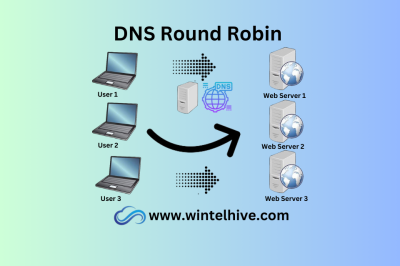


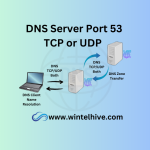
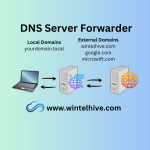
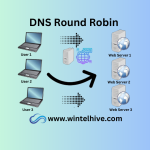

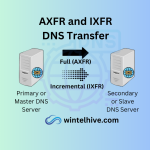
Leave a Reply